Image
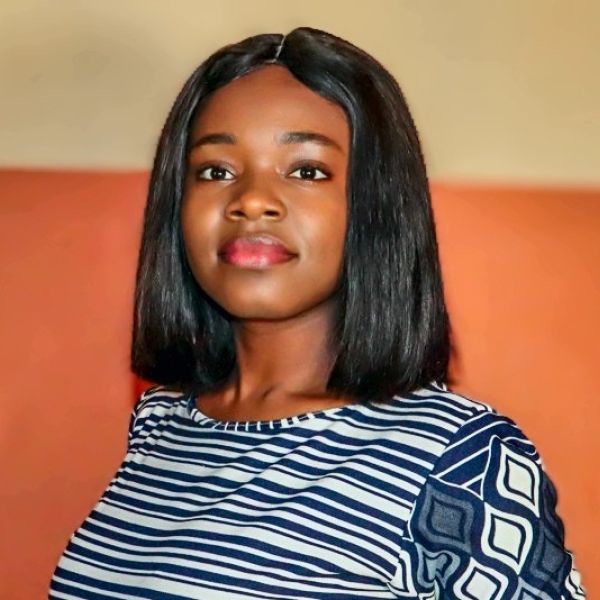
-
Mmachukwu Loretta Obimdike (she/her)
DAAD Scholar | Award-Winning Environmental Educator | ISA Fellow | Founder, Green Environment and Climate Change Initiative
- 30 Under 30
- 2024
Mmachukwu is a dedicated environmental educator leading impactful initiatives that promote environmental conservation and sustainability through innovative educational programs and hands-on-projects.
Germany/Nigeria, 30
How are you using education to build more sustainable and equitable communities? Tell us about your EE work and impact.
As an environmental educator, I leverage education to build more sustainable and equitable communities by developing programs that empower individuals with the knowledge and skills needed to make environmentally conscious decisions. I design interactive workshops, community outreach events, and hands-on projects that focus on critical issues such as waste reduction, water conservation, biodiversity preservation and forest land conservation.
One of my notable projects involved collaborating with local schools to establish nature labs which are citizen science projects that connect young people to their environment and make them understand nature processes so as to appreciate and contribute effectively to its protection. I introduced the Climate Bootcamp in my organization to equip students with green skills that get them ready for climate action and an equitable future.
Additionally, I work closely with marginalized communities, providing resources and training to help them adopt sustainable practices that improve their quality of life. For example, we initiated the Community Empowerment Programme in our organization to train local farmers in climate-smart agriculture that helps build their resilience to climate change and improve their livelihood through agriculture seeds distribution to boost yield and increase income.
The impact of my work is evident in the increased environmental awareness and proactive behavior. Communities are getting more resilient, resource-efficient, and united in their efforts to create a sustainable and equitable future.
Tell us about your journey to where you are today. What inspired you? What has your path been like?
I was formerly an Environmental Officer for an NGO contracted by the Nigerian Erosion and Watershed Management Project (NEWMAP), a World Bank assisted project in Enugu, Nigeria, where I worked closely with eight communities where their gully erosion sites were being remediated. Though the erosion menace started as a natural occurrence, the anthropogenic activities practiced by the community members, such as illegal sand excavation and deforestation, exacerbated the process and led to massive destruction. It led to loss of farmland, shelter, and access to basic amenities, disrupting their livelihood and economic progress. During my engagements as the Environmental Officer, I held so many workshops and led the livelihood enhancement programs of the project to assist their day-to-day living. It was during these workshops that I got to know that the problem of our environment was more behavioral, and if nothing was done, we would live generations bearing the consequences of our actions. There was a heap of blame on the government by these communities, instead of noticing their own activities that assisted in the environmental damage. That was a prevalent mindset that attributed environmental degradation solely to government inaction, without recognizing their own roles in exacerbating the process. This lack of awareness and sufficient environmental knowledge highlighted the urgent need for education and behavioral change to address and mitigate the impacts of climate change effectively not just in those communities but within different states in Nigeria.
When the contract ended, I started promoting environmental education in schools to guide young people. From my experience, I believe that addressing environmental issues requires a shift in mindset, which inspired me to found the Green Environment and Climate Change Initiative (GECCI), which one of our core areas of focus is Environmental Education.
How can people learn more about or support your work?
Learn more about us and support our work by visiting our website, and follow our social media channels, where we regularly share updates, success stories, and upcoming events.
Our social media:
To support our work, we are open to partnerships and collaborations for projects. Volunteer as resource personnel during our programmes, both online and in-person. As we advance in our work, we offer internships for those looking to gain deeper experience in environmental education and conservation, and we need professionals who would mentor the interns.
Long term funding and donations are crucial to expand our programs and sustain impacts. Financial contributions enable us to purchase necessary materials, fund new projects, and reach more schools and communities. We also welcome in-kind donations such as E-STEM and immersive learning tools, educational supplies, technologies and other resources that support our initiatives and overall sustainable development. Donate here
Another way to support us is by spreading the word. Share our mission and successes with your networks, invite friends and family to our events, and advocate for environmental education in your own community.
A Little More About Me
What (or who) keeps you hopeful for the future?
The passion and creativity of young people committed to environmental causes keep me hopeful for the future. Witnessing communities come together to embrace sustainable practices reinforces my optimism. The continuous advancements in green technologies also inspire confidence in me for a more sustainable world.
Who (or what) do you look up to as inspiration?
Wangari Maathai's dedication to environmental conservation and social justice through the Green Belt Movement profoundly inspires me. Her resilience, vision, and ability to mobilize communities showcase the impact one determined individual can have. Her legacy encourages me to pursue meaningful, grassroots-driven change.
What makes you most excited to be an EE30U30 awardee?
Being an EE30U30 awardee excites me most because it connects me with NAAEE and a network of passionate, like-minded individuals who are dedicated to environmental education and sustainability. This recognition validates the impact of our work at the Green Environment and Climate Change Initiative (GECCI) and inspires me to continue pushing for positive change.
How do you unwind?
Reading books, spending time in nature and quality time with loved ones.
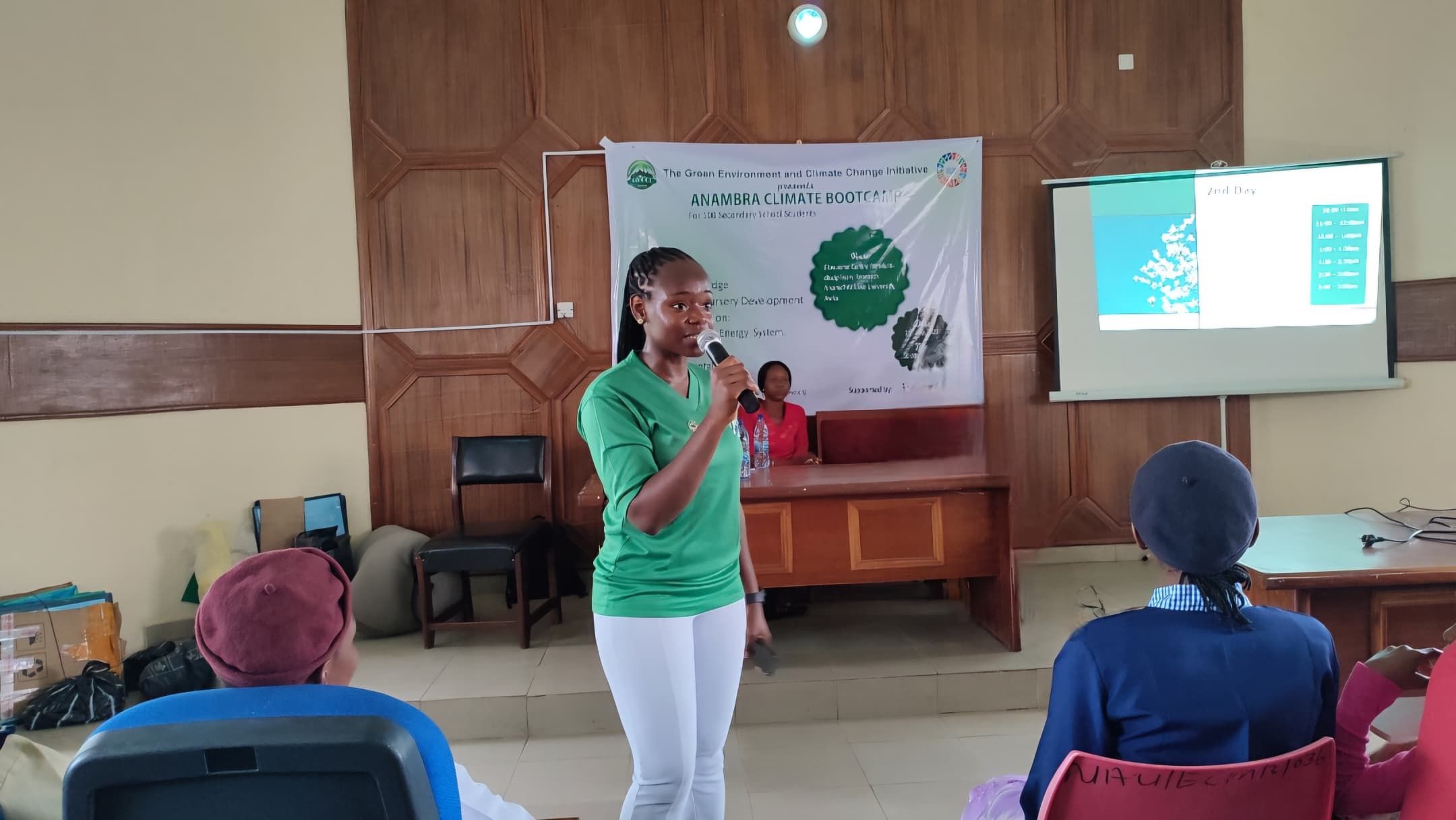
Mmachukwu addressing the participant of the first Anambra Climate Bootcamp. Credit: GECCI photo
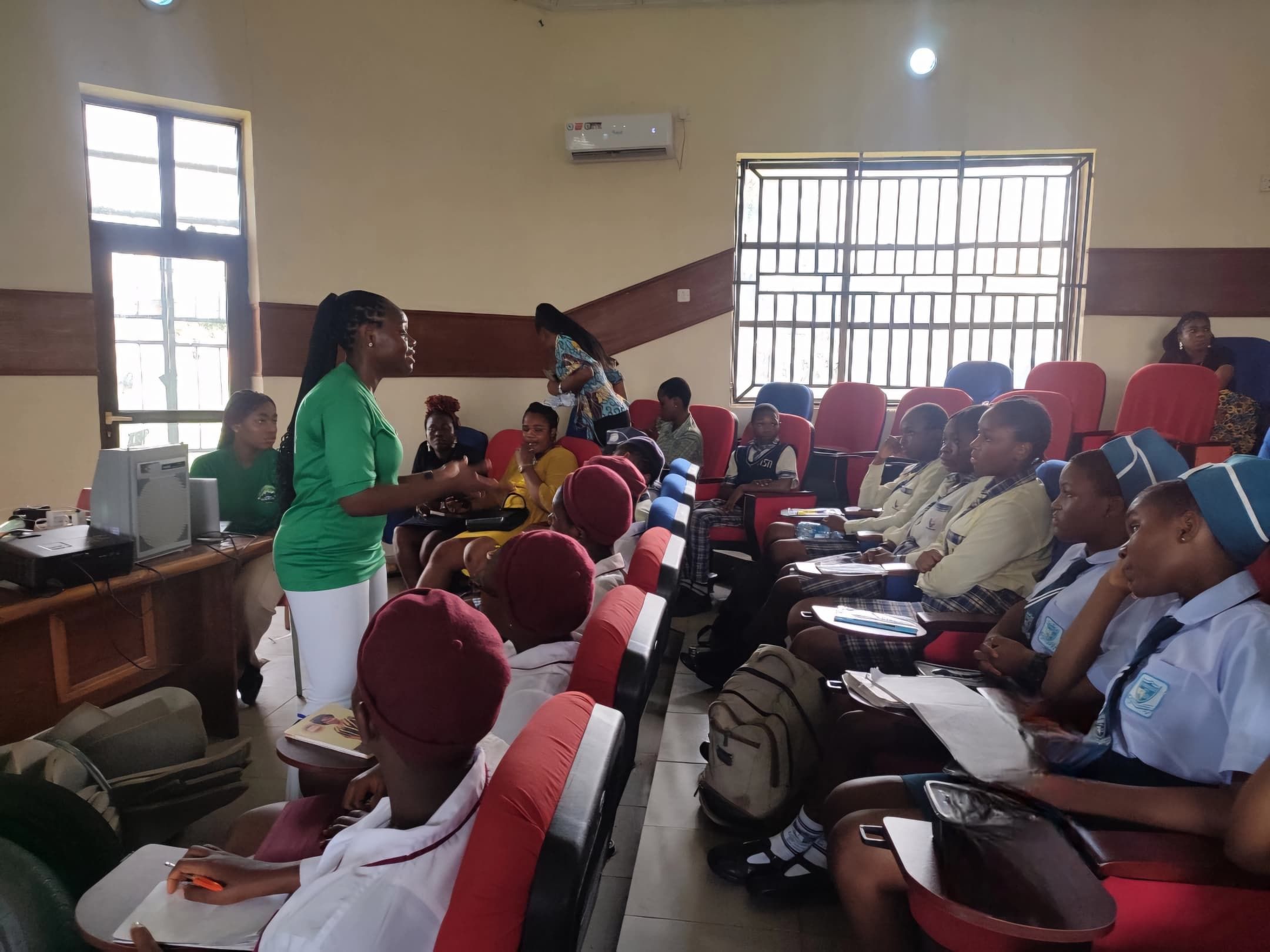
Mmachukwu explaining the concept of upcycling to the students during the Climate Bootcamp. Credit: GECCI photo
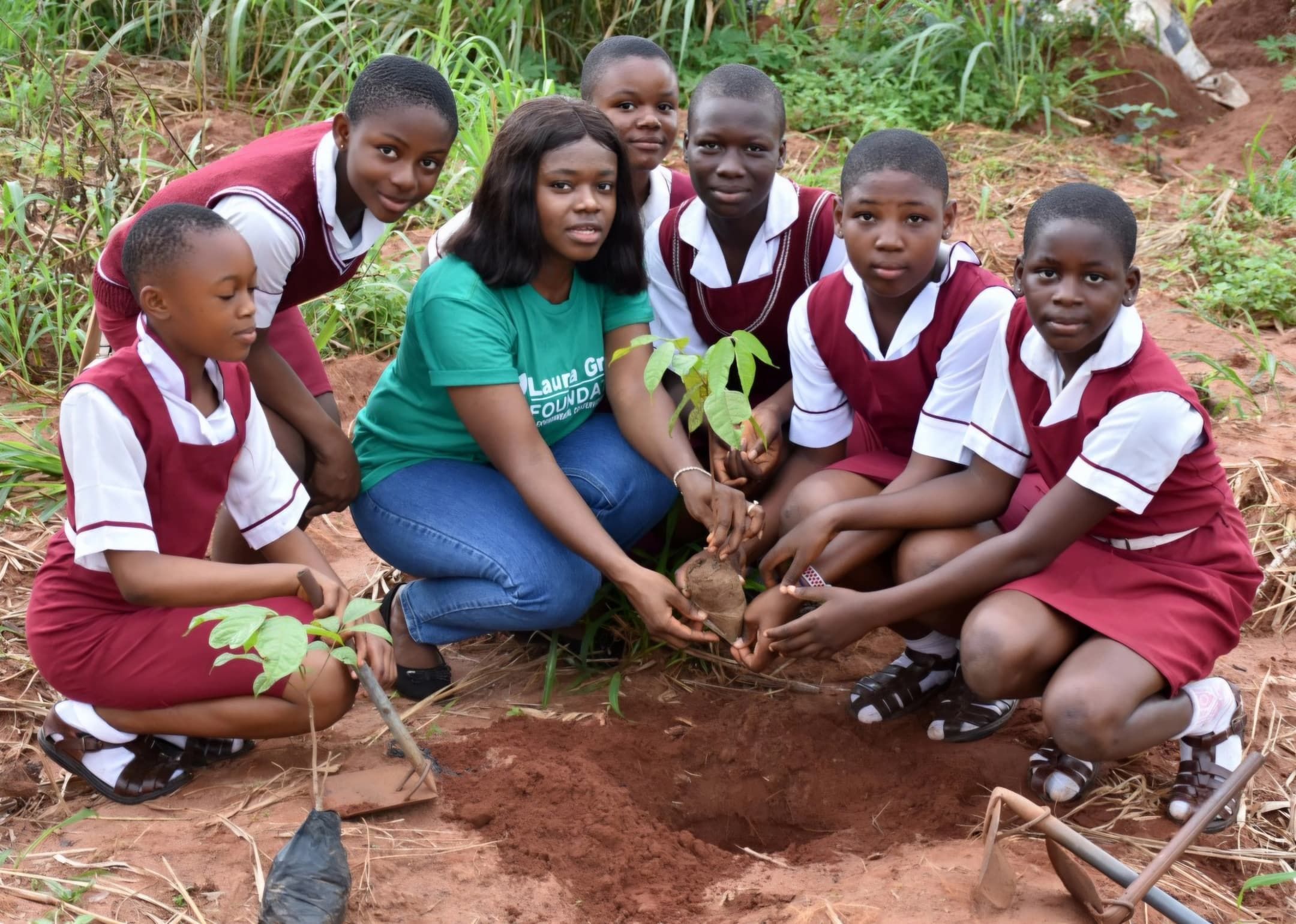
Mmachukwu with students of St. John of God Secondary School Awka during the school ReGreen Project. Credit: GECCI photo
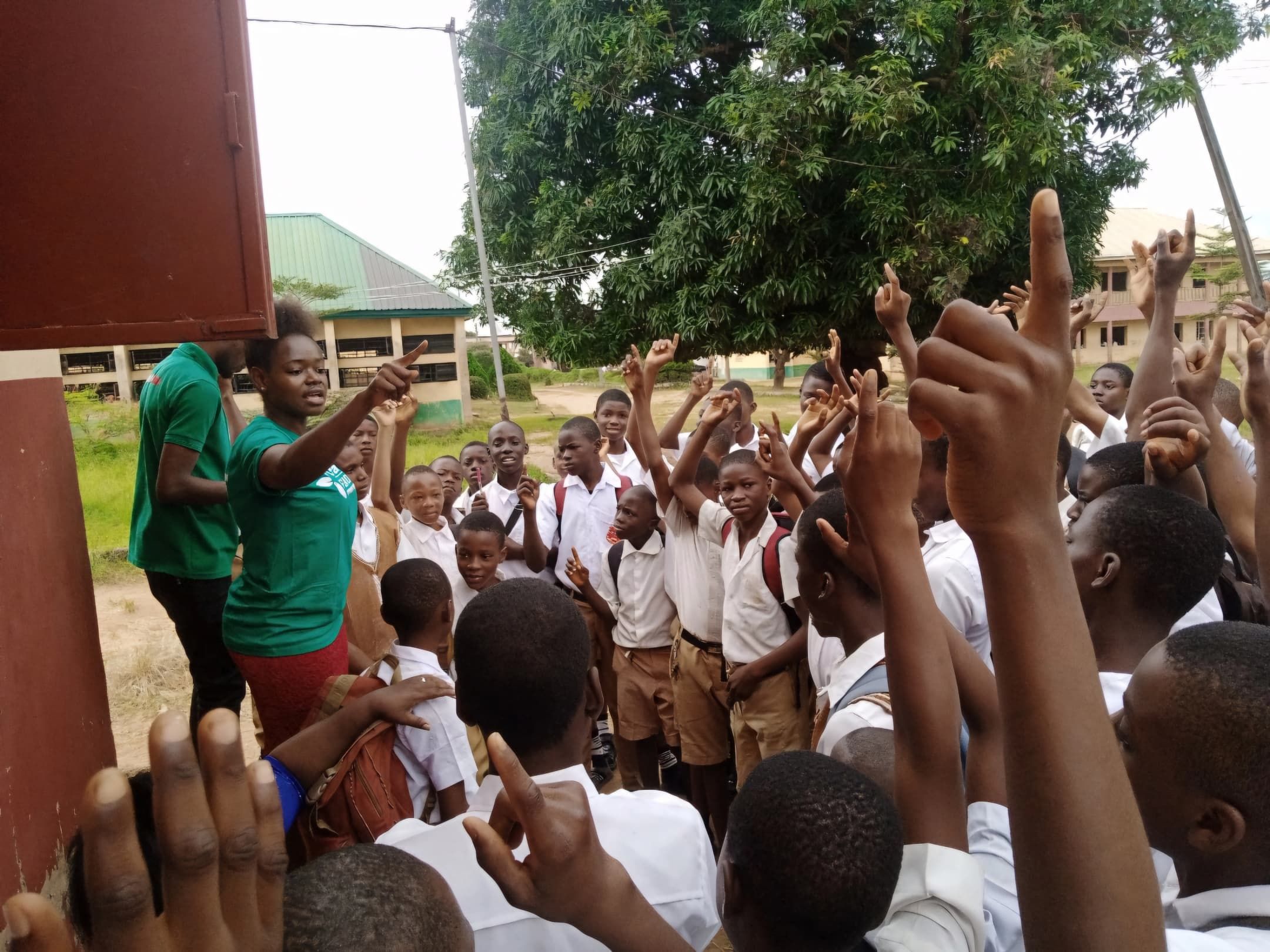
machukwu with students of Igwebuike Grammar School Awka during their Environmental Club Establishment. Credit: GECCI photo
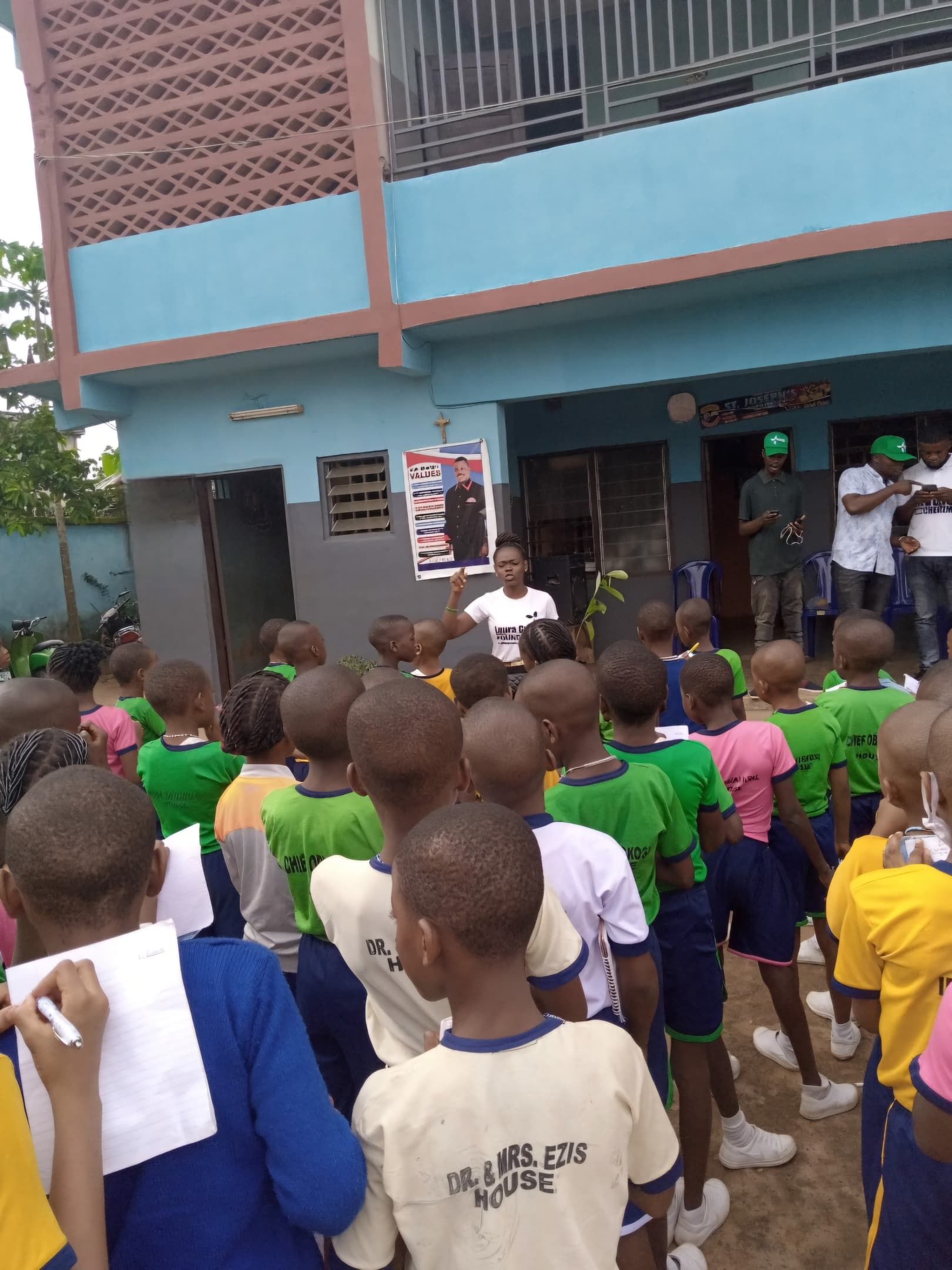
Mmachukwu with students of St. Joseph Nursery and Primary School Nnewi during the School Regreen and sensitization project. Credit: GECCI photo